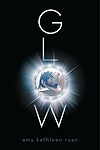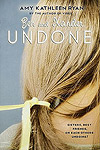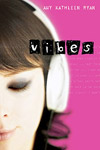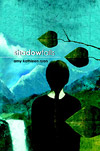Says Tim Worstall of Forbes: "More titles, easier access and quite possibly a saving of public funds. Why wouldn’t we simply junk the physical libraries and purchase an Amazon Kindle Unlimited subscription for the entire country?"
What an idea! What a deep thinker! It's pure dollars and sense! Fire the librarians, tear down the libraries, and give all the money to AMAZON! After all, they know what to do with it, right? Let AMAZON be in charge of what the public reads from now on and into eternity! I trust them.
Business purists like Mr. Worstall are dummies in intellectual clothing. The only thing that matters to him is money. Forget after school and adult literacy programs, lecture series that are free and open to the public, literary events with guest authors, and the plain and simple public good of having a gathering place where people can read, think, research, and be together.
Forget the blow to the economy of all those millions of suddenly out of work librarians, who would now have far fewer places to tender their valuable skills. (And they are skilled. Very.)
Oh wait! Mr Worstall has a solution! They can work at AMAZON!!
Forget the slap in the face to all those people who have dedicated themselves to the love of literature, and to the good of their communities. Forget the deep insult of devaluing them to the level of a portable reading device.
The fact that this guy has a national platform is honestly baffling.
What concerns me about this article isn't really the idea, which is ridiculous and obviously stupid. I'm more concerned about this trend of devaluing our public servants. If we devalue our teachers, then we devalue learning too. If we devalue librarians, we devalue literature and research. And do I have to point out that both these professions are populated largely by women? Is this a coincidence, or are suggestions like Mr. Worstall's just chauvinism in the guise of fiscal streamlining?
I'm not providing a link to the FORBES article because it's probably click bait anyway. Instead I'll link to this blog piece by a NYC librarian that responds to Worstall's article rather hilariously:
http://magpielibrarian.wordpress.com/2014/07/20/sure-lets-close-the-libraries-and-just-get-everyone-an-amazon-kindle-unlimited-subscription/
If you love books, if you love your library like I do, you have to stand up for it. We all must defend our teachers and librarians, because they're under attack in a very real way. Teachers and librarians are heroes on the front lines defending our crumbling society, trying to battle the forces that are destroying literature and love of learning. They deserve our utmost respect.
Tuesday, July 22, 2014
Monday, July 21, 2014
Cheer up: Here is a joke about writing.
A writer died and was given the option of going to heaven or hell.
She decided to check out each place first. As the writer descended into the fiery pits, she saw row upon row of writers chained to their desks in a steaming sweatshop. As they worked, they were repeatedly whipped with thorny lashes.
"Oh my," said the writer. "Let me see heaven now."
A few moments later, as she ascended into heaven, she saw rows of writers, chained to their desks in a steaming sweatshop. As they worked, they, too, were whipped with thorny lashes.
"Wait a minute," said the writer. "This is just as bad as hell!"
"Oh no, it's not," replied an unseen voice. "Here, your work gets published."
I didn't write this. Found it here, a great page with jokes for writers:
http://www19.homepage.villanova.edu/karyn.hollis/prof_academic/Courses/common_files/jokes_about_writing.htm
She decided to check out each place first. As the writer descended into the fiery pits, she saw row upon row of writers chained to their desks in a steaming sweatshop. As they worked, they were repeatedly whipped with thorny lashes.
"Oh my," said the writer. "Let me see heaven now."
A few moments later, as she ascended into heaven, she saw rows of writers, chained to their desks in a steaming sweatshop. As they worked, they, too, were whipped with thorny lashes.
"Wait a minute," said the writer. "This is just as bad as hell!"
"Oh no, it's not," replied an unseen voice. "Here, your work gets published."
I didn't write this. Found it here, a great page with jokes for writers:
http://www19.homepage.villanova.edu/karyn.hollis/prof_academic/Courses/common_files/jokes_about_writing.htm
Saturday, July 12, 2014
Blog Tour: Writers share their process.
 I have been asked by my good friend, Jil Picariello, (isn't she cute?) author of the beautiful memoir Jessica Lost, to participate in a blog tour. I'm to invite a third writer to a conversation about process, but first let me tell you a little something about Jil. She is a brilliant cook, so brilliant that she even makes her own cheese. She's a sweet and loving presence, and she has an infectious giggle. I was in a writing group with her for a few years after we both completed our MFAs in Creative Writing from The New School, and I learned a lot from her, not just about writing, but about life in general.
I have been asked by my good friend, Jil Picariello, (isn't she cute?) author of the beautiful memoir Jessica Lost, to participate in a blog tour. I'm to invite a third writer to a conversation about process, but first let me tell you a little something about Jil. She is a brilliant cook, so brilliant that she even makes her own cheese. She's a sweet and loving presence, and she has an infectious giggle. I was in a writing group with her for a few years after we both completed our MFAs in Creative Writing from The New School, and I learned a lot from her, not just about writing, but about life in general.
.jpg)
Jil is all around delightful, and so is her memoir, Jessica Lost. (The picture to the right is a link to purchase the book on Indiebound.) In it, she tells the story, with the help of her biological mother, of how she was given up for adoption as a baby, and how she found her way back to the woman who gave birth to her. It's a beautiful story of loss and healing, and I highly recommend it. Jil writes very charmingly about her own process here: http://bibliocook.blogspot.com
And now let me introduce the next writer on the tour. We've chosen to have a conversation about our writing process, and I'm honored she agreed to be here.
Laura Pritchett is kind of famous in the town where I live. She's got a Ph.D. in creative writing from Purdue University, and her work has been nominated for a Pushcart Prize. Her novel Sky Bridge was chosen by School Library Journal as a top ten book for that year --very impressive. She also writes beautiful essays that you can find in such literary journals as The Sun, Orion, and High Country Review. You can learn more about her at her website: http://www.laurapritchett.com/
Her latest novel, Stars Go Blue, draws heavily on her experience having a parent ill with Azheimer's disease. The book is heartbreaking and absolutely beautiful, and it's getting all kinds of wonderful reviews and well deserved attention in the media. And the cover is just gorgeous! (Click on the picture to order from Indiebound.)

“Pritchett delivers a brilliant novel, filled with heartache and humor,that will strike a chord with many readers.
A heart-wrenching exploration of a family in crisis.”
—Library Journal, Starred Review
“Pritchett’s prose is so beautifully crafted that she manages to make
sadness beautiful and tragedy compelling.”
—Real Simple
Amy: Hi Laura! Thanks for being here!
Laura: Thank you for having me! And Amy, YOU are famous in this town. And for good reason. I have to say: this town has such a wide diversity of voices, which is how, I suppose, we ended up doing a blog post together. First, I heard of you and your incredible books, and now I have the extreme pleasure of getting to know you. Whether YA or sci fi or historical or whatever – it is an incredible joy to share this writing journey with others. Also, I think all this speaks to the importance of community – of being part of the larger scope of things. When I first started writing, I was often home alone, writing away. And I still do that. For sure. But I also realize the importance of engaging in the larger community of writers and book lovers ---- which has (luckily for me) brought your work into my world. It’ s an honor to be sharing this conversation with you. You and your works are a complete joy and wonder.
Amy: Thank you so much for that! (Ego swelling very pleasantly. Enjoying sensation...) But let's get down to business: I'd be so interested to hear about what you're working on right now.
Laura: Thank you for having me! And Amy, YOU are famous in this town. And for good reason. I have to say: this town has such a wide diversity of voices, which is how, I suppose, we ended up doing a blog post together. First, I heard of you and your incredible books, and now I have the extreme pleasure of getting to know you. Whether YA or sci fi or historical or whatever – it is an incredible joy to share this writing journey with others. Also, I think all this speaks to the importance of community – of being part of the larger scope of things. When I first started writing, I was often home alone, writing away. And I still do that. For sure. But I also realize the importance of engaging in the larger community of writers and book lovers ---- which has (luckily for me) brought your work into my world. It’ s an honor to be sharing this conversation with you. You and your works are a complete joy and wonder.
Amy: Thank you so much for that! (Ego swelling very pleasantly. Enjoying sensation...) But let's get down to business: I'd be so interested to hear about what you're working on right now.
Laura: Besides celebrating the release of Stars Go Blue, my new novel set in contemporary Colorado, I’m working on essays that revolve around that. For example, I got asked by O Magazine to write about issues of caretaking, since that’s one of the themes in the novel. Frankly, this type of writing has been a joy – to “write around” and explore a book that just came out. Besides that, though, I’m working on a novel about a young woman in eastern Colorado who is running illegal drugs and immigrants through a well-known route there. It’s a sequel to Sky Bridge, my first novel. How about yourself?
Laura: My work is literary and set in the West – so I’m going to address that. I’d say that here in the American West, the West has been portrayed one way: Men were the focus, they were quiet and stoic, they had a bunch of broken dreams, and they had a minority and a woman to help them out. But literature has rapidly changed; we’ve evolved. We’ve quit being so romantic and nostalgic, and new voices have become part of our literary dialogue--voices by minorities, women, and complex men.
I am often afraid, however, that we’ve backed ourselves up into another corral. Perhaps the myth has not gone away, it’s just changed, and I wonder if our books have romanticized us yet again. One example? I often wonder if we Westerners are we all to be fishing, camping, kayaking outdoorsy tough folks? Are we just the mythic male, only in slightly different form?
So I hope my books at least attempt to deal with this myth-busting. I think lots of other writers are doing this, too, just to be clear. We are trying to tell the untold stories: Besides the ranchers that live all around me in my little rural hometown, there are also painters and musicians, army personnel and homemakers. There are folks suffering from anxiety, schizophrenia, and bi-polar disorders. There are meth addicts, illegal immigrants, the very poor and the very rich. There are plenty of people in the West who aren’t outdoorsy, don’t fish, don’t camp, hike, or fix fence.
So, what is my plan? To keep pushing the boundaries of the literature set in the West. I want the full spectrum and an honest gaze directed at politics, poverty, wealth, sex, sexual orientation, class issues, overpopulation, climate change. A good book’s job is to expose real lives, the blood and heart inside us all.
How about you, Amy? How is your work different from most YA?
Amy: I guess I'd have to say that I'm a bit philosophical in my writing, or at least I try to be. I'm not the only writer of YA who is philosophical, not by a long shot, but I would say that most of the genre tends to be more about story and character and voice, and less about theme. (Though it would be a mistake to say theme is absent in YA.) My Sky Chasers series is, in the final analysis, an argument for the separation of church and state. I look at how corrupting it is when a leader is both the spiritual and the political figurehead, and why it's better for the two roles to be kept separate. Beyond that, I tackle pretty weighty issues like religion, medical ethics, and the futility of violence, so my books, though they are full of action, are not your typical shoot-em-up adventure, even though I think it's a pretty exciting story.
It's always a mystery to me where writers get their ideas. How does it work for you? Why do you write what you write?
Laura: Because I love to read. Be a part of the larger community and conversation. Books have a lot of power, after all. They show us how to live, or how we could live. They make us less lonely, they connect us, and they illustrate ways of being human. Always, as a writer, I am seeking to put words to the inchoate, as truthfully as I can.
And by the way, Amy, I’m a huge fan of your work. And I have to say, I just ordered another to catch up with all you’ve been doing. The other day, at a conference, someone questioned “young adult literature these days,” and I went into a semi-rage rant. He obviously hadn’t read your work – or the work of so many YA writers out there. Frankly, there is TONS of great YA out there, and it makes me a bit crazy when it gets dismissed as being less sophisticated (or something) than “adult literature.” Wrong. YA Lit is EVERY BIT as sophisticated and complex and important as adult literature , and your work is one amazing example. I know you’ve posted on this before, and I so appreciate that. Okay, but back to biz: Tell me, why do YOU write?
Amy: To me this is an unanswerable question, because I really don't know why the stories that come to me almost always star a teen protagonist. Just like for any writer, all my ideas come from deep inside my subconscious, and my subconscious seems fascinated with the teen years. I guess I like the fact that teens are dealing with adult issues even though they have less power and experience than adults, so the stakes become naturally higher --I like a high-stakes story. Plus, I really care about young people, and I want to give them something to read that makes them feel less alone. I slip some heady ideas into my stories to encourage my readers to think, because I know what most YA authors understand: Teens are just as smart, and just as good at reading complex texts, as most adults. And that's the truth. So I try to write books that challenge them, and believe me, that's not easy.
Your books are so evocative and lyrical. I'm curious how your writing process works?
Laura: Generally I think of a character first. I let her sit in my brain for a while. Then I start to ask questions: what’s up with her? What’s her main problem? What’s her main source of joy? From that comes a plot, a story. Then I try to make that character more complicated, more human. When I write a character, I think of that person as having a certain “weather pattern” going on. They are calm, stormy, violent, dull, bright. Of course, a character can change, and needs to change, but still, the character’s core is unique in some way. If I can find that core and write from there, then I feel like that character is a one-of-a-kind – and thus my story will be one of a kind. That’s the most important part of my process, bar none. How about you? What gets you going with a story?
Amy: For me the process is mostly about creating a space in my life for writing. I have three young children, so this is a lot harder than it used to be. I have about ten times more housework than I used to, and a million demands on my time that make keeping a writing practice very difficult. Lately I've been getting up very early, making myself some coffee, and getting some writing in before anyone else wakes up, maybe a couple pages. Then I make breakfast for my family, and they're off to their little social engagements with their nanny, and I get a few more hours to write mid-morning. I find that those few pages I write in the wee hours sets my whole day up for writing during stolen moments the rest of the day. If my book is the first thing I do, it's naturally on my mind all day. I like that. As far as where I begin, for me, it's always a scene, or a conversation between characters. I think I write down the action first, and then hone my characters from there.
Laura: Time to introduce the next writer on our tour! I’m very interested in issues of environmental and social justice, and to that end, Laura Resau’s work has been an inspiration (her work is very imbued with social justice issues, particularly those pertaining to poverty and life in South America). She’s helped me a lot with this upcoming book, in fact, and she continues to be a guiding influence in both my writing life and my regular day –to-day life. She’s brave and courageous – and so is her work. You can find more about her at:
Subscribe to:
Posts (Atom)












